摩西的歌 2
Song of Moses 2
出埃及记 Exodus 15:1–19
Remember these points
I put these points at the top of my sermon-prep template to remind myself every week:
- Show that main point of passage relates to Jesus and his saving work
- (1 Cor 1:18) A truly gospel-centred message will not be acceptable in a synagogue or mosque
- Did I proclaim the gospel as the headline news of the sermon, rather than as a “by the way…”?
- Unbelievers are called to repent, believe, and be saved
- Believers are encouraged to abandon their old self, renew their minds, put on the new self in Christ
- Preach simple sermons, so that God’s people can see Christ more clearly and love him more dearly
News

This page has detailed info about viewing the eclipse in Montreal 这个链接有详细的信息: https://www.timeanddate.com/eclipse/in/canada/montreal?iso=20240408
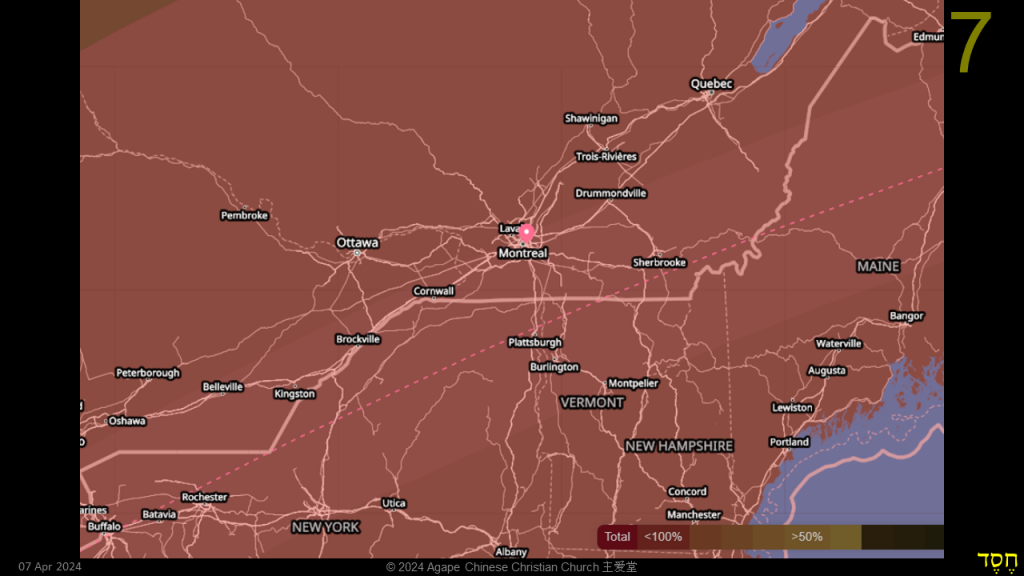
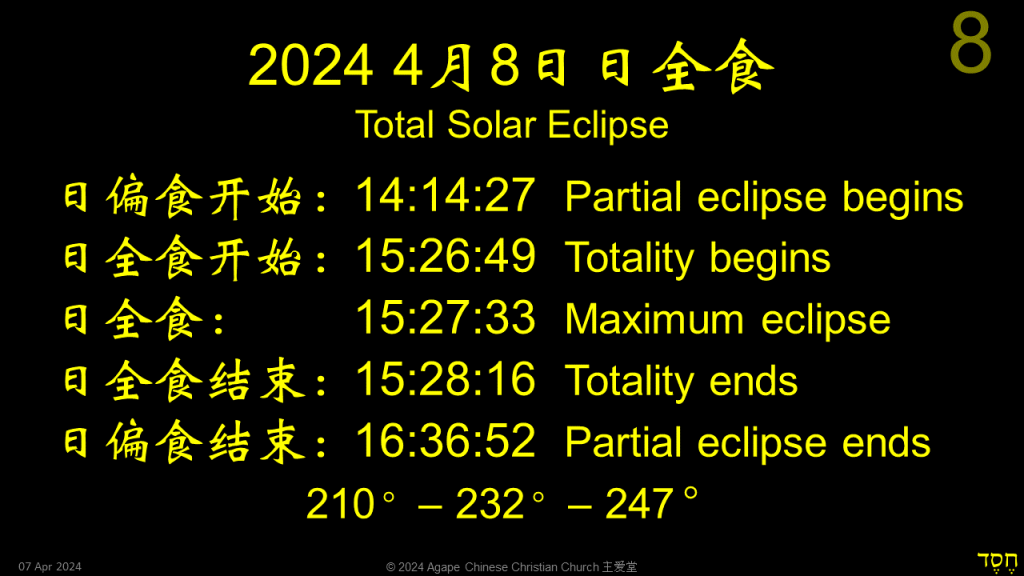

Hook
Passage
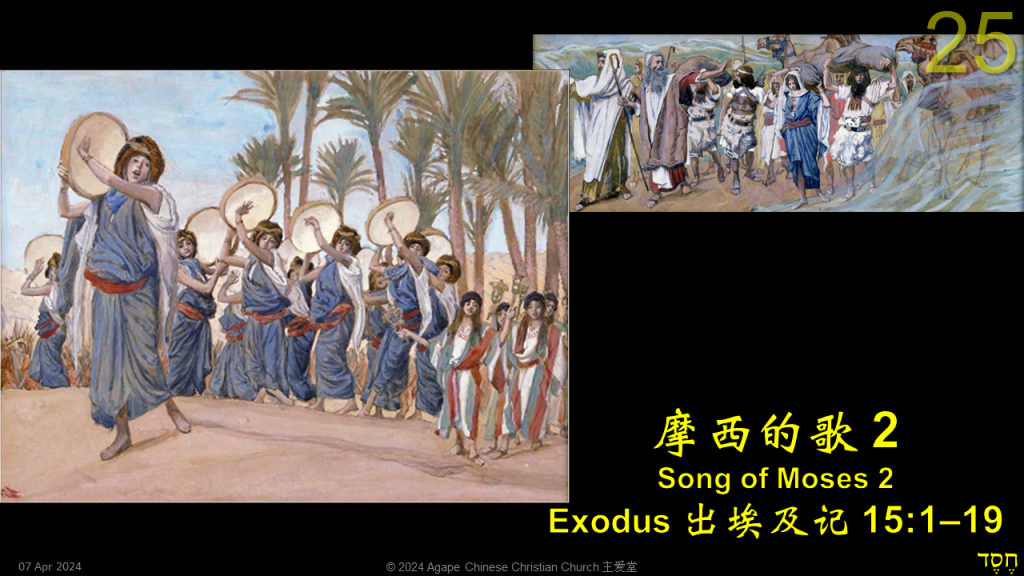
Chinese Text
For passage text in English, click here. Or you can read it as a popup here: Exo 15:1–19.

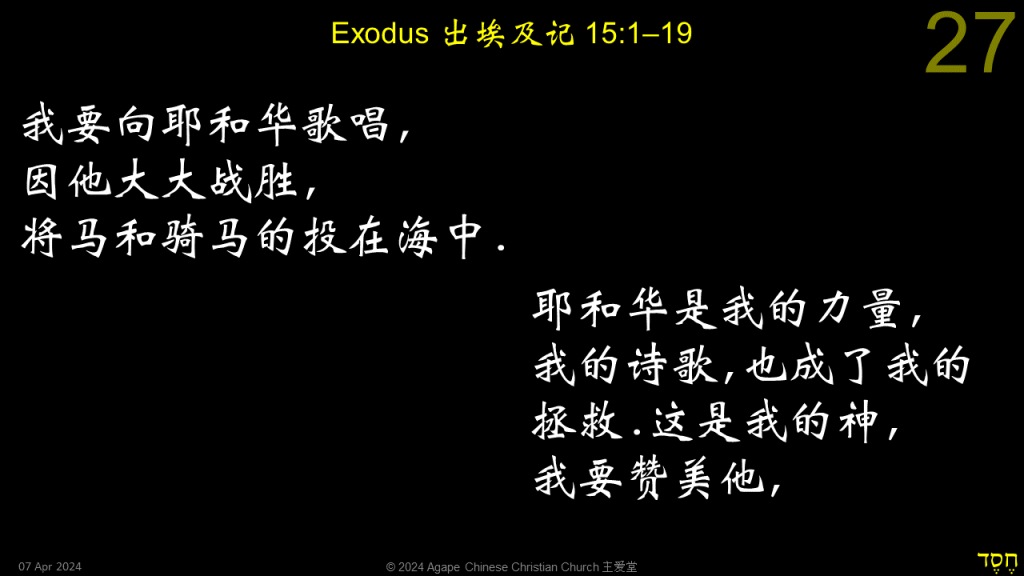
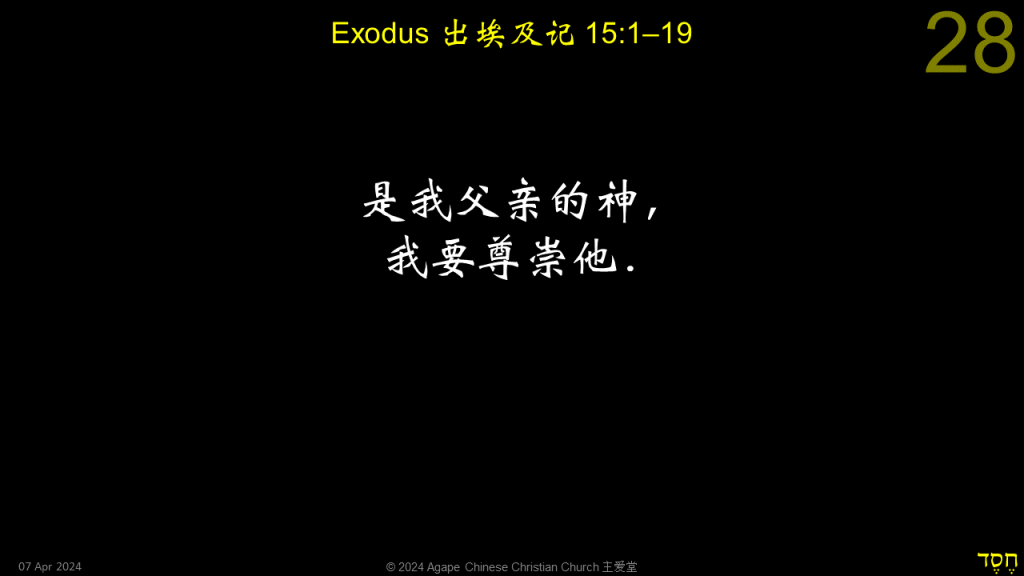


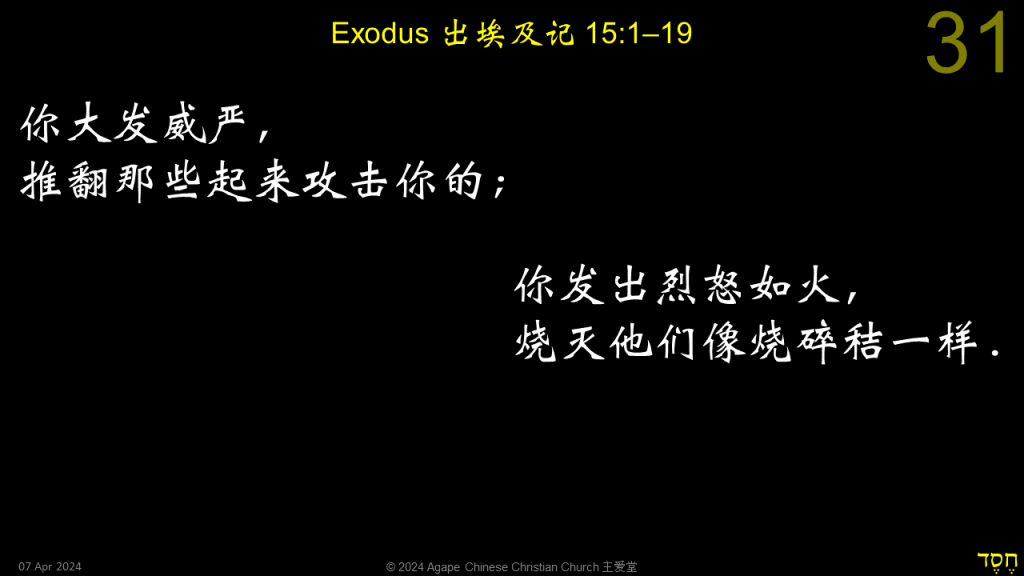
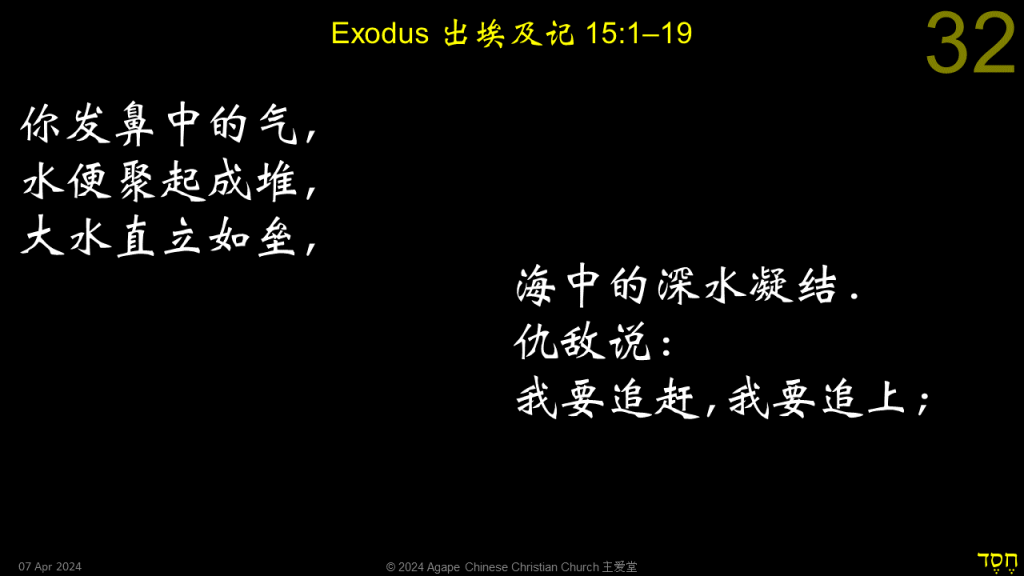
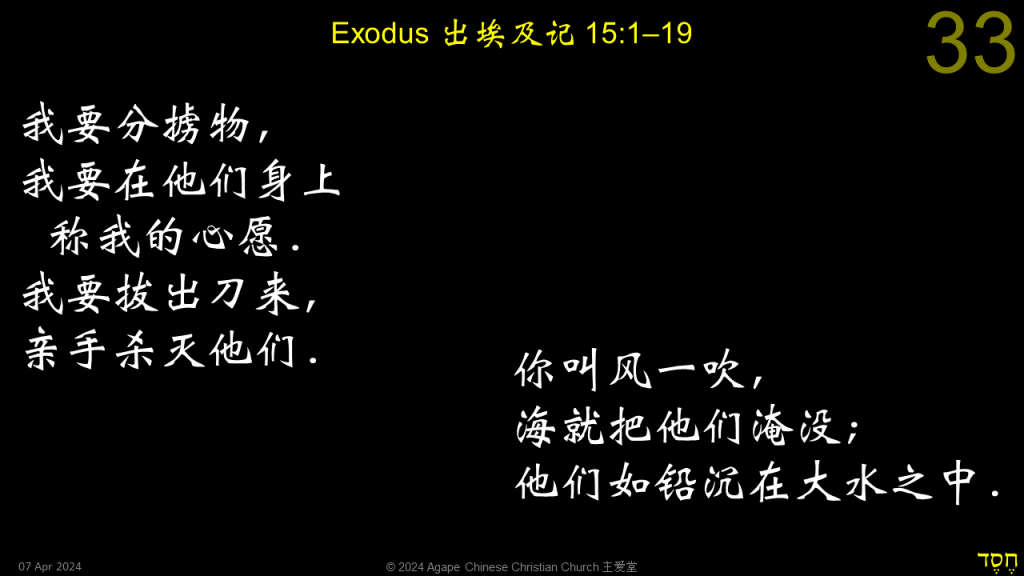
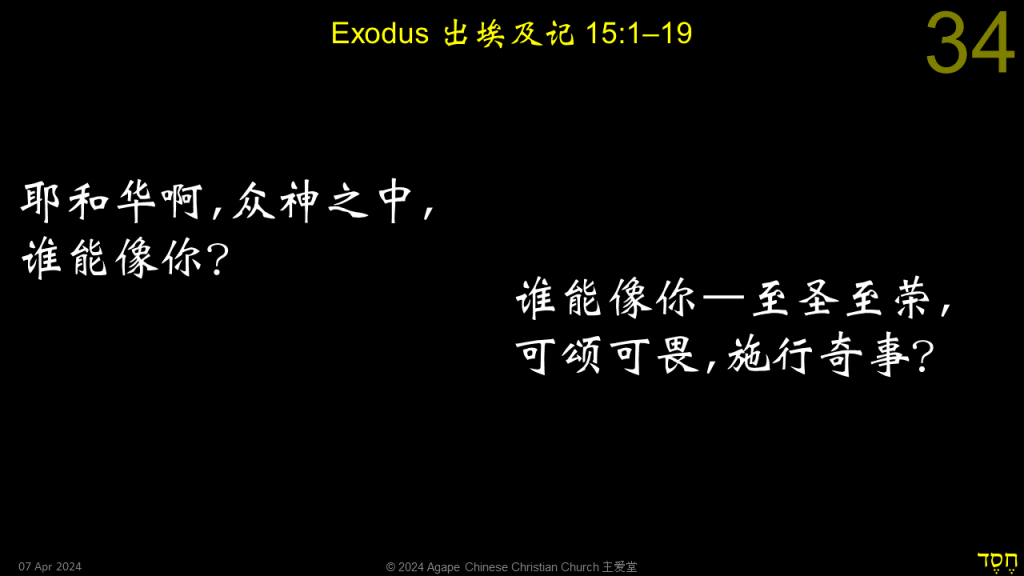
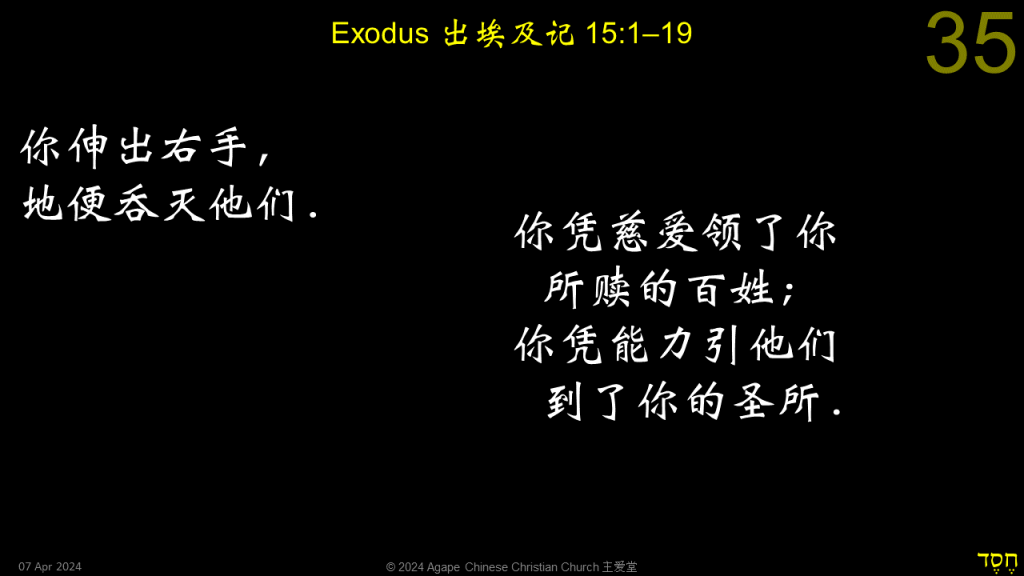

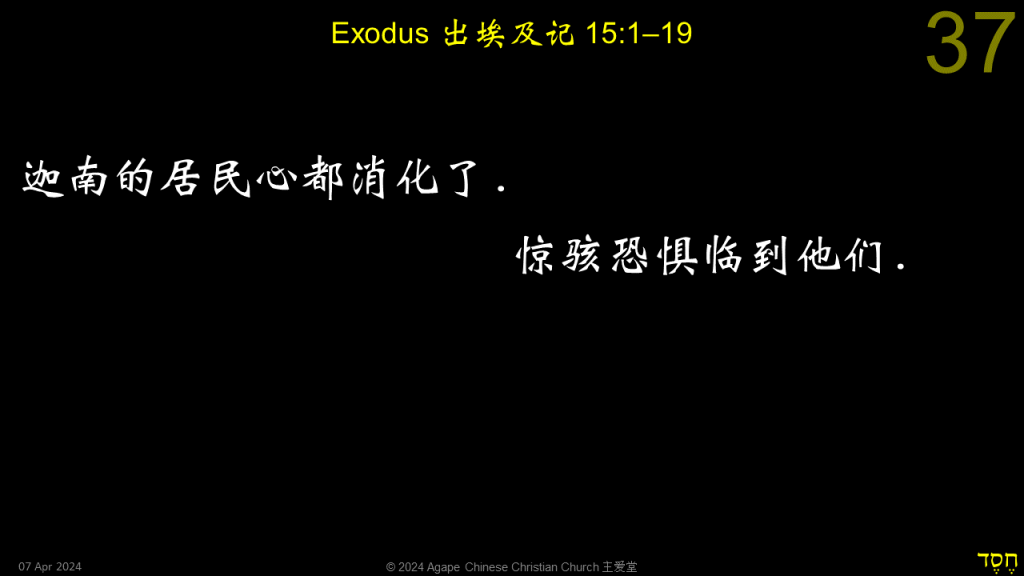
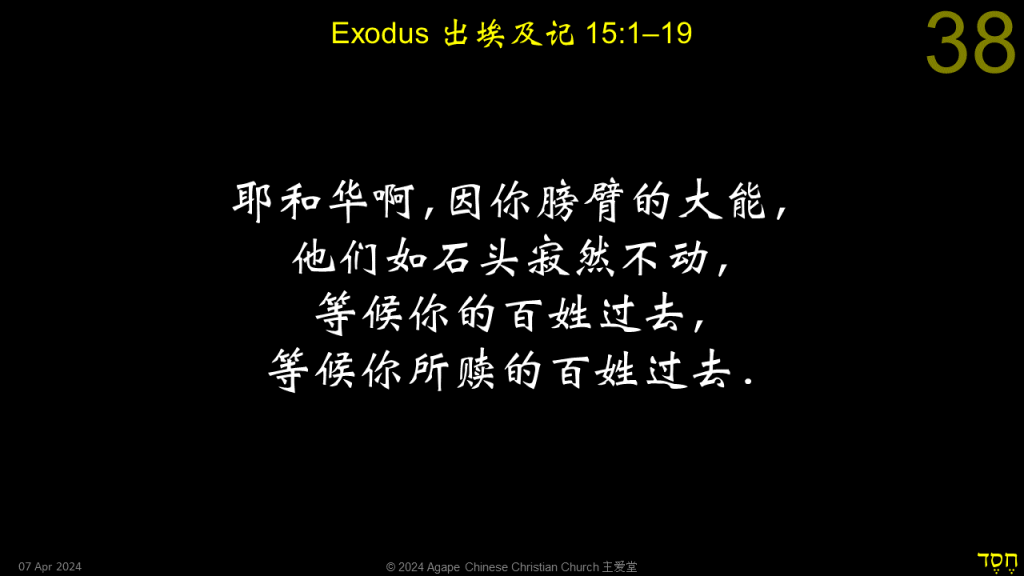


English Text
The passage is a song, so it’s typeset like a poem. The 2 slides below doesn’t show this (to save space).
Exo 15:1–19.
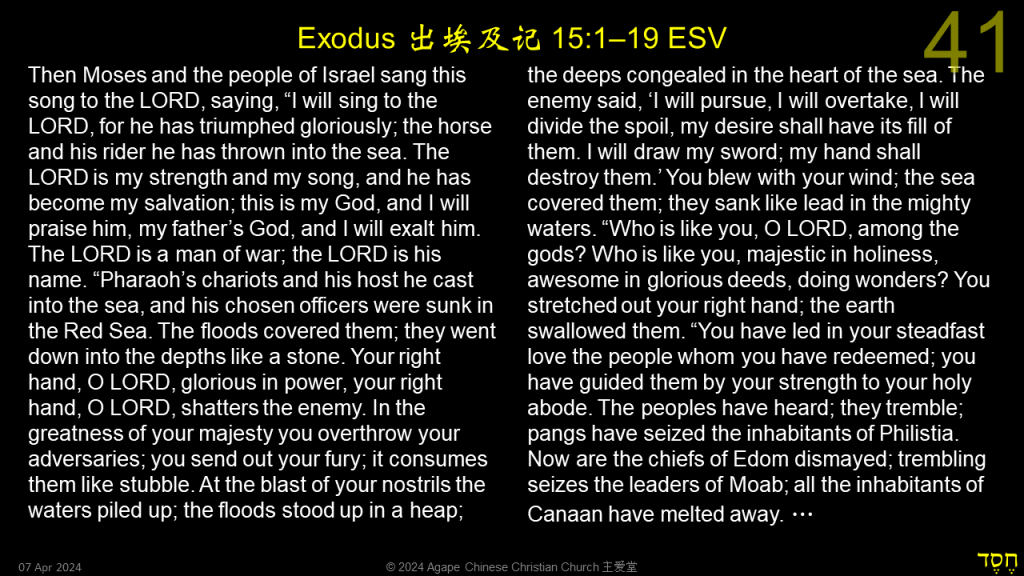
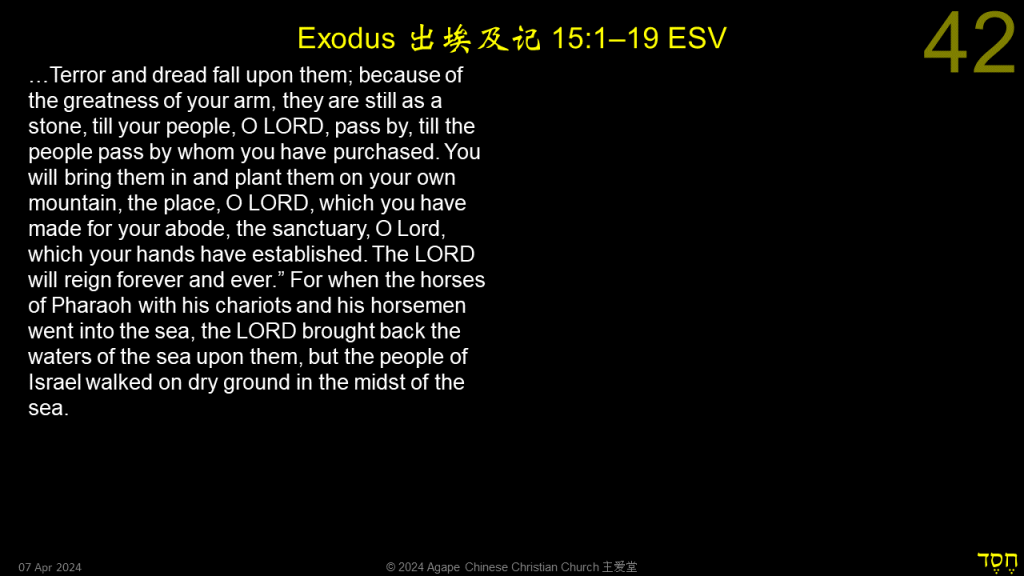
Outline
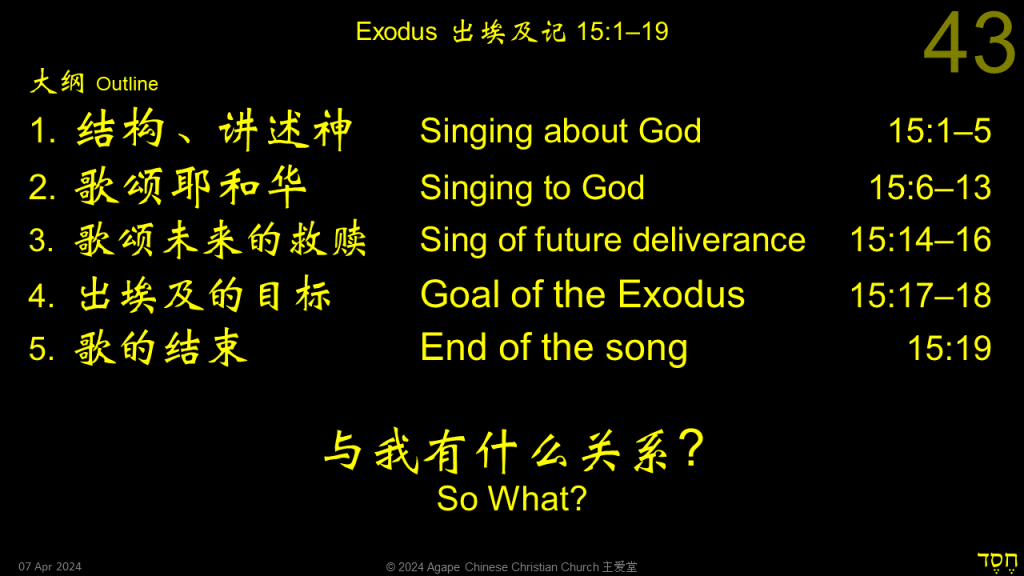
Section 1 结构、讲述神 Singing about God 15:1–5
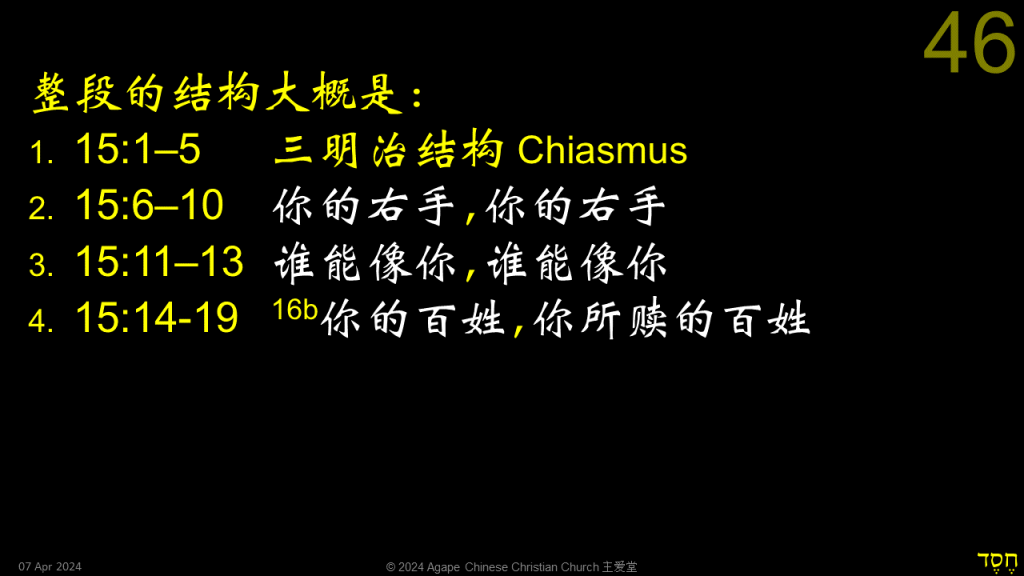
This is more or less the structure of the passage. Different people have different ideas on how to divide it up.
- 15:1–5 Chiasmus, singing (to others) about YHWH
- 15:6–10 Sing to YHWH, “your right hand”
- 15:11–13 Continue singing to YHWH, “who can be like you”
- 15:14–19 “Your people, your people whom you redeemed”
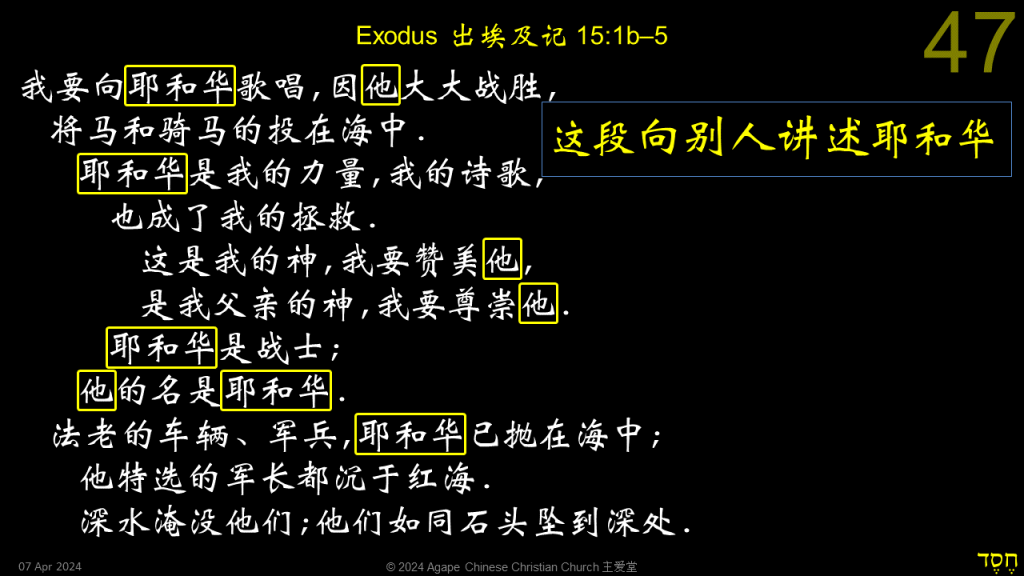
This shows the structure of Exo 15:1–5.
They singing to others about YHWH.
Notice all the 3rd person references.
Section 2 歌颂耶和华 Singing to God 15:6–13
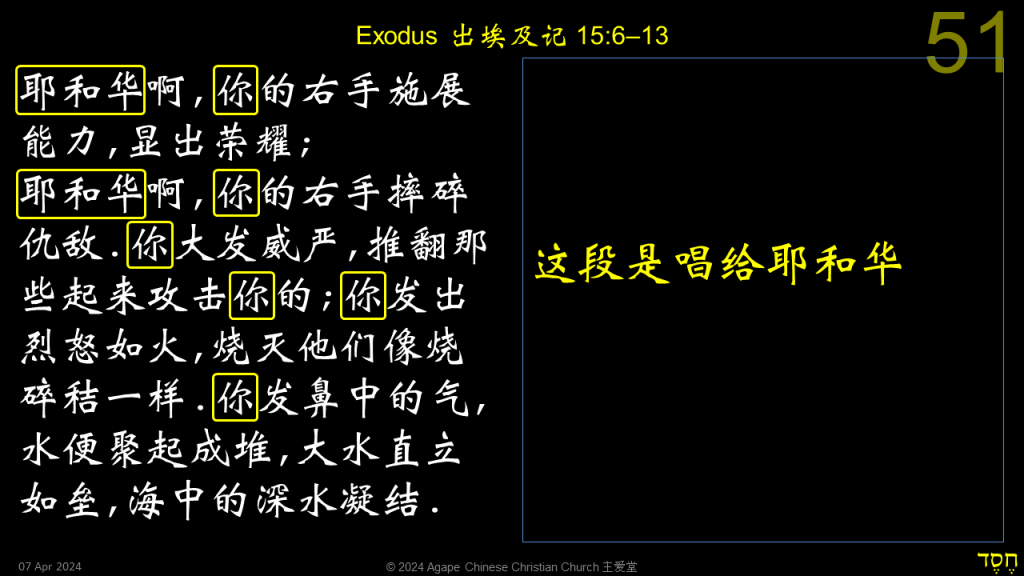
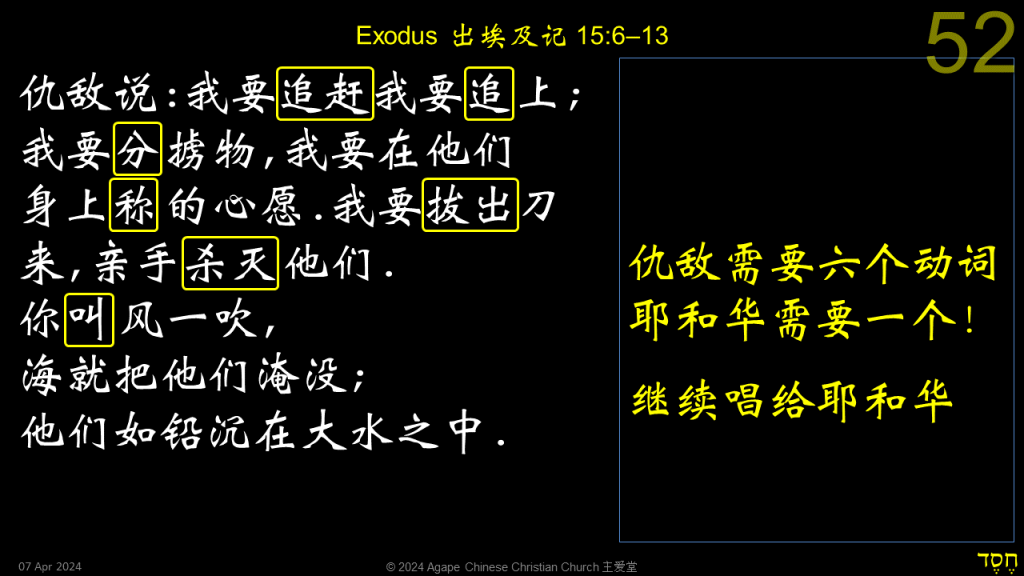

This section sings to YHWH, note all the 2nd person references.
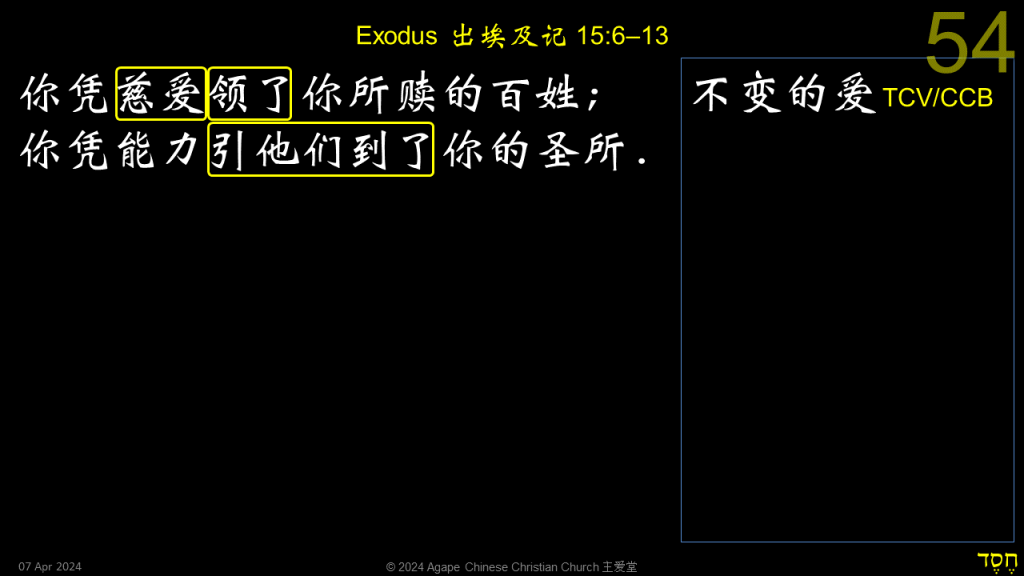
“Steadfast love” translates the Hebrew Chesed. The term covers much more than the English “steadfast love.”
The Hebrew of chesed is shown on the lower-right corner of each slide.
The “Today’s Chinese Version” and “Contemporary Chinese Bible” translations have 不变的爱, which is closer to the Hebrew meaning than the CUV’s 慈爱.
Section 3 歌颂未来的救赎 Sing of future deliverance 15:14–16

Note that it’s “peoples,” plural.
This includes any nation or people that isn’t Hebrew.
This includes Chinese. So don’t ever think Christianity is a western religion or only for western people; it’s just as relevant for the Chinese.
The peoples listed are the Philistines, Edomites, etc. These are all enemies of the Hebrews when they get into Canaan (in the book of Joshua). So this is in the future.
Section 4 出埃及的目标 Goal of the Exodus 15:17–18
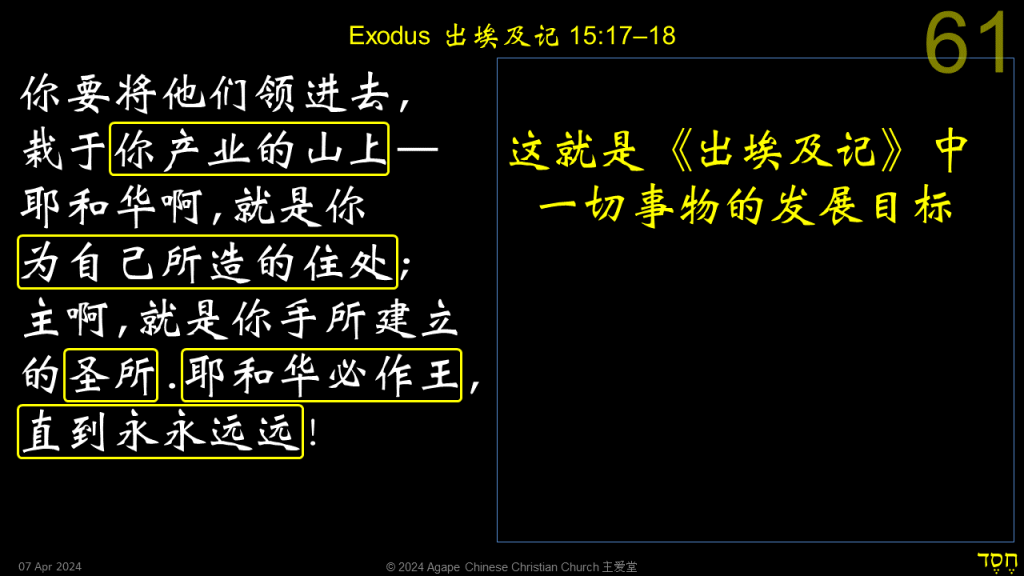
This is the main point or goal of the Exodus. It’s to be close to God.
It’s a continuation of the theme of “back to Eden,” the plan that YHWH has of bringing all his people (including the church in the NT) to his presence.
Section 5 歌的结束 End of the song 15:19
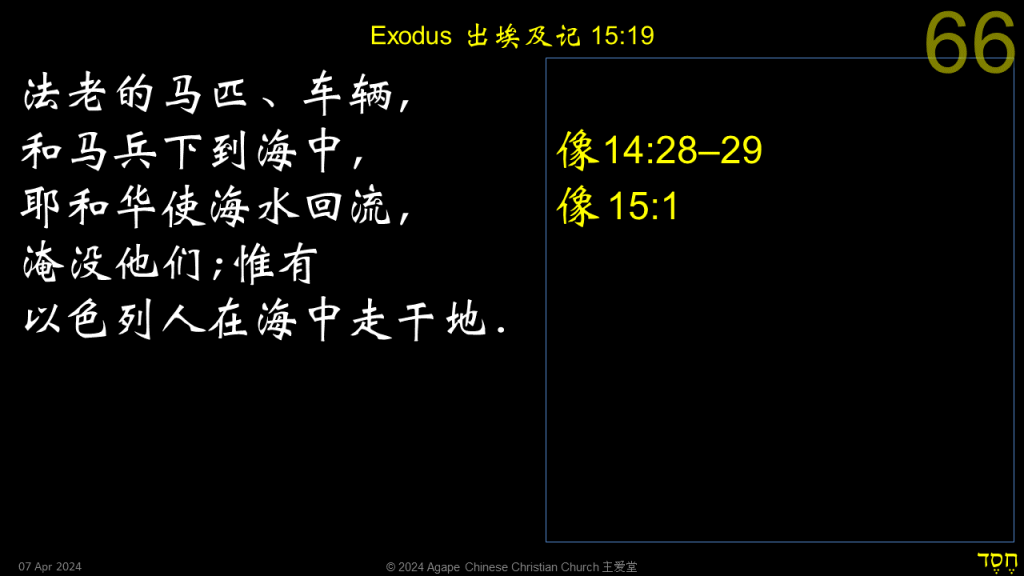
This final verse (Exo 15:19) is like Exo 14:28–29, and is a bookend to Exo 15:1.
Some translations (like the CUV) put this verse with Miriam’s song. I think it fits better here with today’s passage.
与我有什么关系? So What?
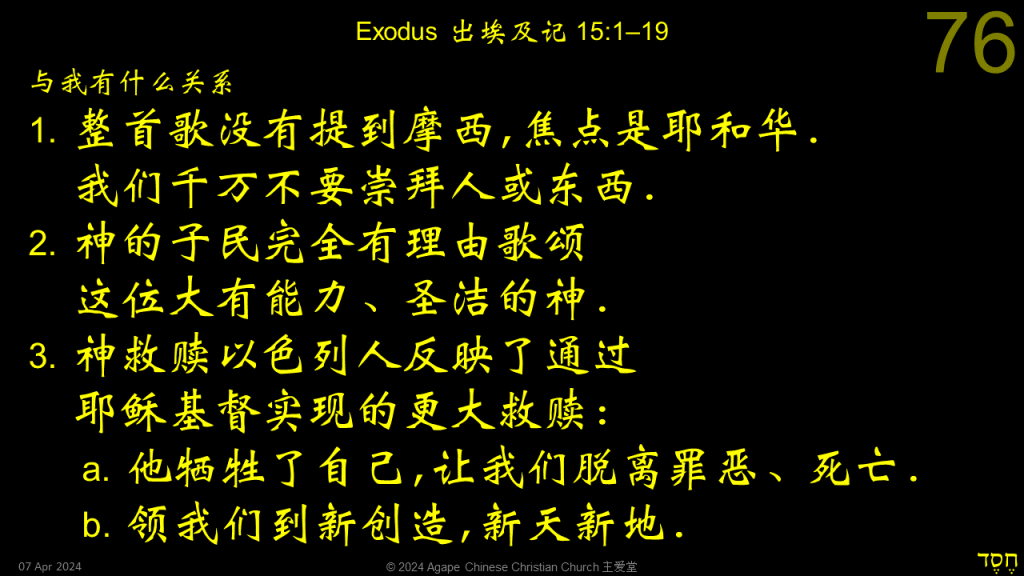
- In the entire song, Moses was never mentioned. The focus is all on YHWH.
We should remember this, never worship a person (like some famous pastor or evangelist) or a thing (like the cross). - The people of God have all the reason to sing of this God who is mighty and holy.
- God’ saved ‘s salvation of the Israelites is like a preview of the much greater salvation affected by Jesus Christ:
- He sacrificed himself to allow us to be free from the bondage of sin and death.
- He will bring us into the new creation, the new heaven and the new earth.

